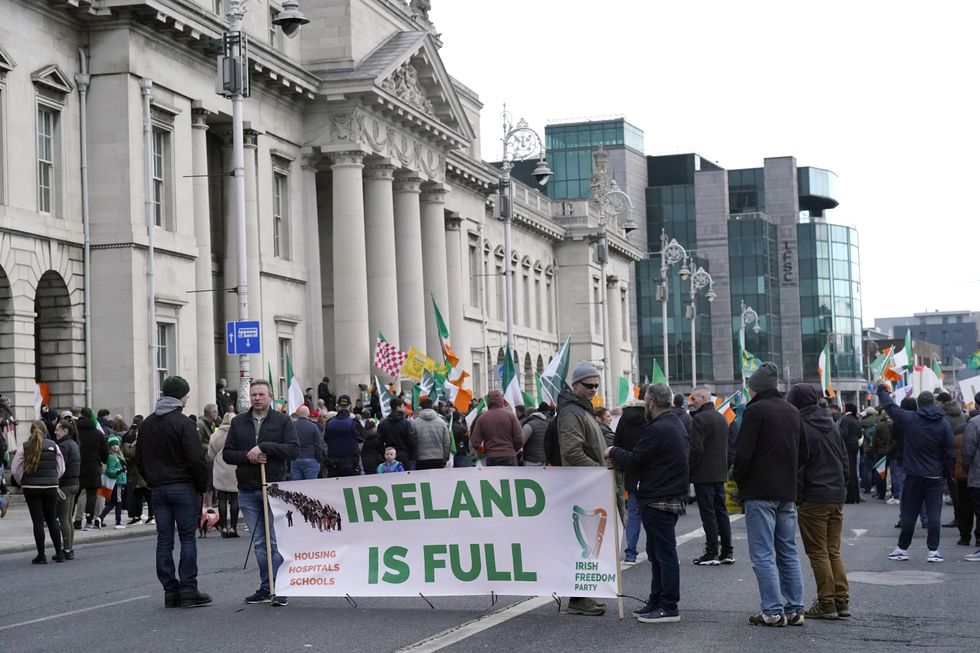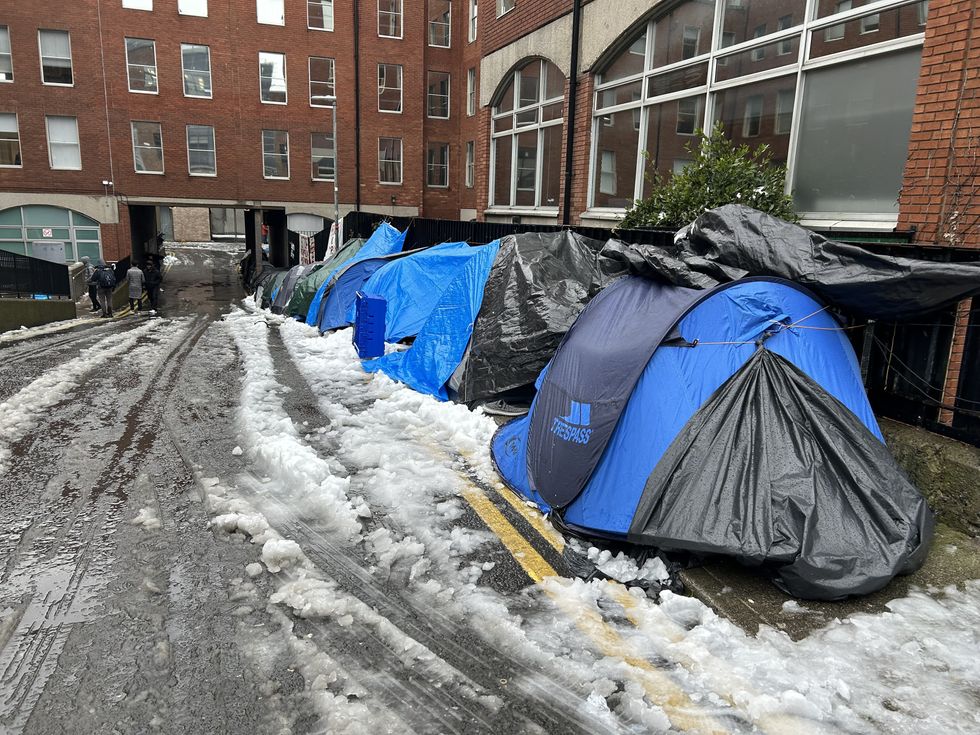Protests and anti-migrant arson attacks have recently broken out across Ireland amid a housing crisis
PA
Similar schemes are already said to be in place in France, Germany, Belgium, Spain, the Netherlands and Hungary
Don't Miss
Most Read
Trending on GB News
The Irish Government is looking to charge working asylum seekers up to €238 (£200) per week to cover accommodation, food and services such as WiFi.
As part of a migration crackdown, the latest move comes amid concerns Ireland is offering a much better deal for migrants than other European countries.
Similar schemes - which could take up to two years to implement - are already said to be in place in France, Germany, Belgium, Spain, the Netherlands and Hungary.
According to EU rules, member states can ask for contributions from €15 a week to €238 a week from working asylum seekers, depending on their earnings.

Protests and anti-migrant arson attacks have recently broken out across Ireland amid a housing crisis
PAProtests and anti-migrant arson attacks have recently broken out across Ireland amid a housing crisis.
It comes after the number of asylum seekers almost doubled in the first six months of this year - compared to the same period in 2023.
Simon Harris, the Taoiseach, has successfully bolstered Fine Gael's position on the back of a firm stance on immigration since taking over leadership from Leo Varadkar in April.
At that time, Sinn Féin had a strong lead in the polls, which had persisted for nearly two years.
LATEST DEVELOPMENTS:
However, the opposition's support significantly declined following defeats in the June local and European elections, where their immigration policies were outmaneuvered.
A recent Irish Times/Ipsos poll showed Fine Gael achieving its highest ratings since 2021, gaining four points to reach 27 per cent, while Sinn Féin dropped three points to 20 per cent, its worst showing since before the 2020 general election.
Simon Harris also saw a significant 17-point surge in his personal approval, now at 55 per cent, which has sparked speculation about an early election ahead of the March 2025 deadline.
Meanwhile, in the Netherlands, Geert Wilders praised his government's request to opt out of EU migration policies, referring to it as a "mini-Nexit."

The number of asylum seekers almost doubled in the first six months of this year - compared to the same period in 2023
PA
Despite his victory in last year's elections on an anti-immigration platform, Wilders is not part of the Dutch government.
The European Commission rejected the Dutch request, reaffirming the binding nature of EU laws.
Hungary, too, has signalled its intention to withdraw from European migration rules.







